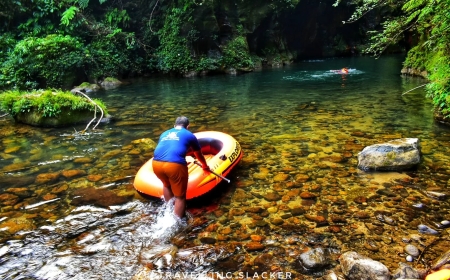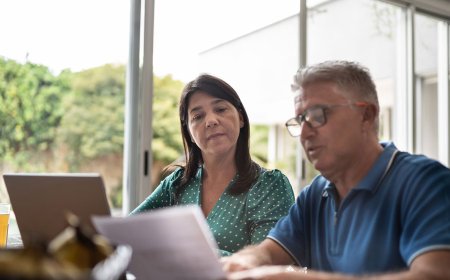How to Find Oakland Photography Classes
How to Find Oakland Photography Classes Photography is more than a hobby—it’s a powerful medium for storytelling, self-expression, and professional growth. In Oakland, a city rich with cultural diversity, vibrant street life, and stunning natural landscapes, the demand for skilled photographers continues to rise. Whether you’re a complete beginner looking to capture your first sunset or an aspirin
How to Find Oakland Photography Classes
Photography is more than a hobby—it’s a powerful medium for storytelling, self-expression, and professional growth. In Oakland, a city rich with cultural diversity, vibrant street life, and stunning natural landscapes, the demand for skilled photographers continues to rise. Whether you’re a complete beginner looking to capture your first sunset or an aspiring professional aiming to refine your craft, finding the right photography class in Oakland can transform your creative journey. But with countless options available—from community centers to private studios—it can be overwhelming to know where to start.
This guide is designed to help you navigate the landscape of photography education in Oakland with clarity and confidence. You’ll learn not only where to look but also how to evaluate programs, identify instructors with real experience, and choose a class that aligns with your goals, schedule, and budget. By the end of this tutorial, you’ll have a personalized roadmap to enroll in the best photography class for you—no guesswork, no wasted time.
Step-by-Step Guide
Step 1: Define Your Photography Goals
Before you begin searching for classes, take time to reflect on why you want to learn photography. Are you interested in portrait work, landscape photography, street photography, product shots, or photojournalism? Do you want to build a portfolio for freelance work, improve your social media content, or simply enjoy photography as a personal outlet?
Defining your goals helps you filter out irrelevant offerings. For example, if you’re drawn to capturing urban life, a class focused on studio lighting may not serve you as well as one that emphasizes natural light and candid shooting in public spaces. If you’re aiming for commercial work, look for courses that include editing software like Adobe Lightroom and Photoshop, portfolio development, and client communication.
Write down your top three objectives. Keep them visible as you research. This clarity will prevent you from being swayed by flashy marketing or classes that don’t align with your vision.
Step 2: Identify Reputable Local Institutions
Oakland is home to several well-established institutions that offer photography education. Start by researching organizations with a proven track record in arts instruction.
- California College of the Arts (CCA) – Oakland Campus: While primarily a degree-granting institution, CCA frequently offers non-degree workshops and community classes open to the public. These are often taught by faculty or working professionals and cover advanced techniques.
- Oakland Museum of California (OMCA): OMCA hosts photography exhibitions and often partners with local artists to offer hands-on workshops tied to current shows. These classes provide context through art history and cultural narratives.
- Oakland Public Library System: Many branches, including the Main Library and the Dimond Branch, host free or low-cost photography seminars. These are ideal for beginners and often include equipment lending programs.
- Community Colleges: Merritt College and Laney College offer affordable continuing education courses in photography. These are typically semester-based and may count toward certificates in visual arts.
Visit each institution’s website and navigate to their “Community Programs,” “Workshops,” or “Continuing Education” sections. Look for dates, prerequisites, and instructor bios. Prioritize programs that list the instructor’s professional background—real-world experience matters more than academic titles alone.
Step 3: Search Local Photography Studios and Freelancer-Led Classes
Many of the most dynamic photography classes in Oakland are led by working photographers who run their own studios. These instructors often offer small-group sessions, personalized feedback, and real-time critiques—advantages you won’t always find in larger institutional settings.
Use search terms like “Oakland photography workshop,” “private photography lessons Oakland,” or “street photography class Oakland” in Google. Look for websites that include:
- Sample student work or testimonials
- Clear class descriptions with learning outcomes
- Photos of the instructor at work
- Details on class size and equipment requirements
Examples include studios like Black & White Studio Oakland, Light & Shadow Collective, and Urban Frame Photography. These often offer weekend intensives, evening courses, and even mobile classes that take place in locations like Lake Merritt, the Fruitvale District, or the Jack London Square waterfront.
Don’t overlook Instagram. Many Oakland photographers promote their classes through visual portfolios. Search hashtags like
OaklandPhotographyClass, #PhotographyWorkshopOakland, or #BayAreaPhotography. Follow local photographers and check their bio links or pinned posts for upcoming events.
Step 4: Leverage Community Boards and Social Media Groups
Local online communities are goldmines for unadvertised opportunities. Many small classes are shared through word-of-mouth before being listed publicly.
Join these platforms:
- Facebook Groups: “Oakland Artists & Makers,” “Bay Area Photographers Network,” and “Oakland Creative Collective” regularly post about upcoming workshops, open calls, and pop-up photo walks.
- Meetup.com: Search for “photography” in Oakland. You’ll find groups like “Oakland Photo Walkers” and “Film Photography Enthusiasts of the East Bay,” which often host educational outings led by experienced members.
- Nextdoor: Neighborhood-specific posts sometimes feature local residents offering private lessons or group sessions in their homes or backyards.
- Reddit: Subreddits like r/Oakland and r/photography often have threads where users ask for recommendations or share recent class experiences.
When you find a group, don’t just lurk. Ask questions: “Has anyone taken a class on night photography in Oakland?” or “What’s the best beginner course for someone with a DSLR?” Real experiences from locals will guide you better than any brochure.
Step 5: Attend Local Photography Events and Exhibitions
One of the most effective—and enjoyable—ways to discover classes is by immersing yourself in Oakland’s photography scene. Attend openings, festivals, and talks where instructors and students gather.
Key events to mark on your calendar:
- Oakland Photography Festival (annual, usually in fall): Features workshops, panel discussions, and portfolio reviews. Many instructors who lead the festival also run year-round classes.
- First Friday Art Walks (monthly in Downtown and Uptown): Galleries often display student work and have flyers for upcoming classes. Talk to curators—they know who’s teaching what.
- Black Camera Film & Photo Festival: Focused on underrepresented voices, this event frequently offers educational panels and hands-on sessions with Black and Brown photographers from the region.
Bring a notebook. Jot down names of speakers, gallery names, and any handouts you receive. These are direct leads to instructors and programs you might not find online.
Step 6: Evaluate Class Format and Logistics
Once you’ve compiled a list of potential classes, assess them based on practical factors:
- Duration: Is it a one-day workshop, a 6-week course, or a 12-week semester? Match the length to your availability.
- Schedule: Do classes happen on weekends? Evenings? Can you commit consistently?
- Location: Is it accessible by public transit? Is parking available? Will you need to travel across the city?
- Cost: Compare pricing. Some classes include equipment rental or printing fees; others require you to bring your own gear. Look for hidden costs.
- Class Size: Smaller groups (8–12 students) allow for individual attention. Large classes (20+) may offer less feedback.
- Equipment Requirements: Do you need a DSLR? Is a tripod required? Are mirrorless cameras acceptable? Confirm this before registering.
Call or email the organizer with your questions. A responsive, detailed reply indicates professionalism. A vague or delayed response may signal disorganization.
Step 7: Request a Trial or Observation Session
Many Oakland photography instructors allow prospective students to sit in on the first session for free. Don’t hesitate to ask. Observing a class gives you insight into the instructor’s teaching style, student engagement, and classroom atmosphere.
During the trial, pay attention to:
- Does the instructor encourage questions?
- Are students actively shooting, or is it mostly lecture?
- Is feedback constructive and personalized?
- Do students seem motivated and supported?
If the energy feels forced or the pace is mismatched to your level, it’s okay to walk away. The right class should feel energizing, not exhausting.
Step 8: Read Reviews and Ask for References
Online reviews on Google, Yelp, and Facebook can reveal patterns. Look for recurring themes: “Great instructor,” “Too rushed,” “No feedback on assignments.” Be cautious of reviews that are overly generic or suspiciously perfect.
Ask the instructor if they can connect you with a past student. A confident educator will gladly provide references. Reach out to them and ask:
- What did you learn that you still use today?
- Was the class worth the time and money?
- Did you feel supported after the class ended?
Real testimonials carry more weight than marketing copy.
Step 9: Compare Curriculum and Learning Outcomes
Don’t just sign up because the class looks pretty. Ask for a detailed syllabus. A strong photography class should outline:
- Weekly topics (e.g., “Week 3: Understanding Aperture and Depth of Field”)
- Hands-on assignments
- Critique sessions
- Final project or portfolio review
Compare this to your goals. If you want to master low-light photography but the syllabus only covers daylight shooting, keep looking.
Also check if the course includes post-processing. Many beginners overlook editing, but it’s an essential part of modern photography. Ensure the class teaches software relevant to your workflow—Lightroom, Capture One, or even free tools like Darktable.
Step 10: Register and Prepare
Once you’ve selected your class, register early—popular sessions fill up quickly. Confirm payment methods, cancellation policies, and what materials you need to bring.
Prepare by:
- Reading your camera manual (even if you’re a beginner)
- Charging batteries and formatting memory cards
- Downloading any required software
- Bringing a notebook and pen for notes
Arrive early to introduce yourself. Building rapport with the instructor and classmates enhances your learning experience and may lead to future collaborations.
Best Practices
Start with the Right Equipment
You don’t need the most expensive camera to learn photography. A smartphone with manual controls, a used DSLR, or an entry-level mirrorless camera is perfectly adequate for beginner classes. What matters is your willingness to experiment. Many Oakland classes offer equipment loans for the duration of the course—ask about this when you register.
Embrace the Learning Curve
Photography involves technical skills (exposure, focus, composition) and artistic vision. Don’t get discouraged if your first shots are blurry or poorly lit. Every professional photographer started where you are. Focus on progress, not perfection.
Practice Outside of Class
The most successful students are those who shoot daily—even if only for 15 minutes. Use your free time to revisit locations covered in class. Try shooting at different times of day. Experiment with angles and lighting. Practice makes muscle memory.
Build a Personal Project
Choose a theme for your own photo series: “Oakland Street Vendors,” “Sunset Over Lake Merritt,” or “Portraits of My Neighbors.” A personal project gives your learning purpose and becomes the foundation of your portfolio.
Network with Peers
Photography is not a solitary art. Connect with classmates. Form a critique group. Share your work on Instagram with a local hashtag like
OaklandPhotographers. Collaboration sparks inspiration.
Stay Updated on Local Opportunities
Photography is evolving. New techniques, gear, and trends emerge constantly. Subscribe to newsletters from OMCA, CCA, or local photography blogs. Attend free talks and lectures—even if you’re not enrolled in a class. Continuous learning keeps your skills sharp.
Document Your Growth
Keep a digital folder of your photos from each class. Label them by date and technique learned. After six months, review your progression. You’ll be amazed at how far you’ve come—and motivated to keep going.
Tools and Resources
Online Directories
- Classy.org: Lists nonprofit and community-based workshops in the Bay Area, including photography.
- Eventbrite.com: Search “photography class Oakland” for upcoming short-term workshops. Filter by date, price, and rating.
- Meetup.com: As mentioned, this platform hosts recurring photography groups with educational components.
- LocalWiki.org/Oakland: A community-edited resource that sometimes lists hidden gems like backyard photography circles or pop-up classes.
Free Learning Platforms
Supplement your in-person classes with free online content:
- YouTube Channels: “Peter McKinnon,” “Tony Northrup,” and “Mango Street” offer beginner-friendly tutorials on composition, lighting, and editing.
- Adobe’s Free Tutorials: Adobe offers step-by-step guides for Lightroom and Photoshop, perfect for post-processing practice.
- Photography Life: A comprehensive blog with articles on camera settings, gear reviews, and shooting techniques.
Equipment Resources
If you need gear:
- Oakland Public Library: Offers free camera and tripod loans to cardholders.
- KEH Camera: Based in Atlanta but ships nationwide; excellent for buying used gear at fair prices.
- Facebook Marketplace: Search “Canon DSLR Oakland” or “Nikon kit lens” for local sellers. Meet in public spaces like coffee shops or libraries for safe transactions.
Editing Software
Start with free tools before investing in subscriptions:
- Darktable: Open-source alternative to Lightroom.
- GIMP: Free Photoshop alternative for advanced editing.
- Canva: Useful for creating social media posts from your photos.
Many Oakland classes include free or discounted access to Adobe Creative Cloud for students—ask about it during registration.
Local Photography Communities
Join these groups to stay connected:
- Oakland Photo Club – Regular meetups and field trips.
- East Bay Film & Photo Collective – Focused on analog and film photography.
- Women Who Shoot Oakland – Supportive space for female and non-binary photographers.
Real Examples
Example 1: Maria, First-Time Photographer
Maria, a 32-year-old teacher, wanted to document her students’ art projects. She started by visiting the Oakland Public Library’s “Photo Literacy” workshop series. After attending a free session on composition, she enrolled in a 6-week evening class at Merritt College titled “Photography for Storytellers.” The course included field trips to local murals and interviews with students. Maria learned to use her smartphone’s manual mode and began a project called “Voices Through the Lens.” She later exhibited her work at the Dimond Branch library. Her class cost $75 and included a free tripod loan.
Example 2: Jamal, Aspiring Commercial Photographer
Jamal, a 28-year-old freelance graphic designer, wanted to expand into product photography. He found a 12-week intensive through Light & Shadow Collective, taught by a former commercial photographer who worked with local brands. The course covered studio lighting, white balance, and client communication. Each week, students photographed a different product (food, clothing, ceramics) and received written critiques. Jamal built a portfolio of 15 images and landed his first paid gig photographing artisanal candles for a Bay Area shop. The course cost $450 but included two free prints and access to a studio for three extra hours.
Example 3: Priya, Retired Enthusiast
Priya, 68, took up photography after retiring. She joined “Oakland Photo Walkers” on Meetup and attended weekly outings to Lake Merritt and the Redwood Regional Park. She learned to use her Canon DSLR through peer feedback and informal lessons during walks. After six months, she curated a photo book titled “Oakland in Stillness,” which she gifted to family. She never enrolled in a formal class but found immense value in community-based learning.
Example 4: Aiden, High School Student
Aiden, 16, took a weekend workshop at CCA’s Community Arts Program titled “Photography and Social Justice.” The class combined technical training with discussions on representation in media. He photographed his neighborhood’s community garden and submitted his work to a youth exhibition at OMCA. He won an honorable mention and was invited to join a teen photography mentorship program. The class was free, funded by a local arts grant.
FAQs
What is the average cost of a photography class in Oakland?
Costs vary widely. Free classes are available through libraries and nonprofits. Short workshops (2–4 hours) range from $25 to $75. Semester-long courses at community colleges cost $100–$300. Intensive studio programs can run $300–$800. Always check if materials, equipment, or prints are included.
Do I need my own camera to take a class?
Not always. Many classes, especially beginner ones, provide loaner equipment. However, having your own camera allows you to practice outside class and develop familiarity with your gear. If you’re unsure, ask the instructor before registering.
Are there classes for absolute beginners with no experience?
Yes. Look for courses labeled “Beginner Photography,” “Fundamentals of Photography,” or “Camera Basics.” These typically start with how to hold your camera, understand exposure, and use autofocus. Avoid classes that require prior knowledge unless you’re ready to catch up quickly.
Can I take photography classes online if I live outside Oakland?
Some Oakland-based instructors offer hybrid or fully online classes. However, in-person learning is highly recommended for photography, especially for hands-on techniques like lighting and composition. If you can’t travel to Oakland, consider local classes in your area and supplement with virtual critiques from Oakland-based photographers via Zoom.
How long does it take to become proficient in photography?
Proficiency comes with consistent practice. Most students see noticeable improvement after 3–6 months of regular shooting and feedback. Mastery takes years. Focus on building habits, not speed.
Are there classes that focus on film photography?
Yes. The East Bay Film & Photo Collective and some independent studios offer film photography workshops, including darkroom techniques. These are less common than digital classes but highly rewarding for those drawn to analog processes.
Can I take a class if I’m not a U.S. citizen?
Yes. Most community-based and private photography classes in Oakland do not require proof of citizenship or residency. You only need to be able to pay and attend.
What should I bring to my first class?
Bring your camera (if you have one), a fully charged battery, an empty memory card, a notebook, and a pen. Wear comfortable shoes if the class involves walking. If you’re unsure, email the instructor—they’ll tell you exactly what’s needed.
Is there financial aid available for photography classes?
Some nonprofit organizations and community centers offer scholarships or sliding-scale fees. Ask directly. Institutions like OMCA and CCA sometimes have arts education grants. Don’t assume you’re ineligible—many programs are designed to be inclusive.
Can I get college credit for photography classes in Oakland?
Only if you enroll in courses through accredited institutions like Merritt College or CCA’s non-degree programs. Most community workshops and private classes do not offer academic credit but may provide a certificate of completion.
Conclusion
Finding the right photography class in Oakland isn’t about choosing the most popular or the cheapest—it’s about finding the one that resonates with your goals, your rhythm, and your creative spirit. The city offers a remarkable range of opportunities, from free library workshops to intensive studio programs led by working professionals. The key is to be intentional: define your purpose, research thoroughly, observe before committing, and engage actively once you begin.
Photography is not just about mastering settings or editing software. It’s about seeing the world differently—capturing moments that others overlook, telling stories through light and shadow, and connecting with your environment in a deeply personal way. Oakland, with its textures, rhythms, and resilience, is the perfect classroom.
Take the first step today. Visit a local library. Join a Meetup group. Attend a gallery opening. Reach out to an instructor. Your next great photo—and your next chapter as a photographer—begins with a single decision to learn.





























